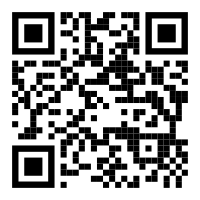Sober curious? How to hit pause on drinking alcohol.
Taking a break from booze can come with lots of health benefits — and pushback from your friends and loved ones. We’ve got expert advice to help you navigate a sober-flexible lifestyle and hit pause on drinking alcohol.

Feeling better. Saving money. Cutting extra calories. These are just some of the reasons people give for drinking less alcohol or taking a break from it altogether — at least for a little while. It’s known as sober curious, sober flexible, or sober sometimes. And it seems to be a growing trend.
Month-long sober movements such as Dry January and Sober October are growing. One survey found that 35% of Americans participated in Dry January in 2022. That’s up from just 13% in 2021, according to another survey.
But does a short-term decrease really do your health that much good? And how do you deal with the cocktail cravings and social pressure to clink drinks? Here’s what the experts say about how to hit pause on drinking alcohol.
Why it’s worth taking a break
It’s probably no surprise that drinking too much, too often isn’t good for you. A number of studies have looked at binge drinking. This is defined as 4 or more drinks at a single event for women and 5 or more drinks for men. The studies have found that regular binge drinking puts you at high risk for long-term health problems such as:
- High blood pressure.
- Some cancers.
- Mental health problems such as anxiety and depression.
- Memory and learning problems.
- Alcohol dependence.
But even moderate drinking — 1 drink a day or less for women, 2 for men — has health risks. It’s been linked with a higher risk of death from certain cancers and heart disease.
Knowing that, it makes sense to hit pause on drinking alcohol even for a little while to reap some benefits. And the science supports this idea.
“Drinking less or being 100% sober for 1 month can allow the body to reset,” says Nancy Irwin, Psy.D. Irwin is a clinical psychologist based in Los Angeles. “Cognitive abilities improve. And the liver enzymes typically fall back into the normal range in about 30 days.”
There are noticeable differences in day-to-day life too. One University of Sussex study followed people who quit drinking for 31 days. When researchers checked in with participants at the end of the study, they found that:
- 82% felt more in control of their drinking.
- 71% slept better.
- 67% had more energy.
- 58% said they lost weight.
Even participants who didn’t stop drinking for the entire month saw some benefits. And many kept drinking less for months longer.
“A sober month can also help people identify if they’re having a problem with drinking,” says Gene Yang, M.D. Dr. Yang is a psychiatrist with Rogers Behavioral Health, a not-for-profit that provides mental health and addiction services.
If that’s something you’re worried about, try using the CAGE screening tool. It’s a set of 4 questions that can help you see if you might have an alcohol use disorder. CAGE stands for Cut down, Annoyed, Guilty, Eye-opener. It asks:
- Have you ever felt you should cut down on your drinking?
- Have people annoyed you by criticizing your drinking?
- Have you ever felt bad or guilty about your drinking?
- Have you ever had a drink first thing in the morning to steady your nerves or start the day?
If you answer yes to 2 or more of these questions, you may be dependent on alcohol. If that’s the case, a mental health professional can help you take back control. Need help finding one? If you have the Wellframe digital health management app as a benefit of your health plan, you can use it to send a private message to your care advocate. They can help connect you with an in-network provider. Or check your health plan’s website for a provider locator.
How to reduce or quit drinking
If you’re not physically dependent on alcohol, one of the toughest parts of quitting drinking or drinking less is the social aspect. There can be a lot of pressure to drink at social events, Dr. Yang says. But it’s easier to handle with a little planning. These tips can help.
- Set goals.
Choose a specific and reachable goal. It gives you a clear target to aim for. And it’s an easy way to measure success or spot challenges. You might try doing Dry January or Sober October. Or drink only at specific events or on certain days. “For example, if someone is normally drinking with dinner every night, maybe cut back to Friday or Saturday night,” Dr. Yang says. - Be honest.
Simply telling people you’re drinking less, or not at all, can help. Many friends and family members will respect your efforts and cheer you on. They might help keep you accountable too, Dr. Yang says. They can check in to see how it’s going. They may even want to join you. - Pick a new drink.
Just because you’re not drinking alcohol doesn’t mean you can’t enjoy something fun and fizzy. Many bars and restaurants make tasty mocktails or offer nonalcoholic beers. Flavored carbonated drinks can also be enjoyable. Keeping a nonalcoholic drink in your hand in social situations also stops people from asking you if you want a drink. - Try a new activity.
Choose something that has nothing to do with drinking. Sign up for a new exercise class. Go see a play. Do a workshop to learn something new such as pottery or guitar. It’s a great reminder that you don’t have to drink to have fun. - Say no.
There’s a chance you won’t face pressure to keep drinking. But it’s still helpful to practice saying “No, thank you” when asked if you want a drink. The key is to be direct and not hesitate. If someone doesn’t take no for an answer, Irwin suggests asking them a question. Saying something such as, “Why is it so important to you that I drink alcohol?” can help shut down the conversation.
Where to find support
Friends and family members are a great place to start. (See Tip 2 above.) And remember to tap your health plan for support. It can help you find a pro who specializes in substance dependency. Here are some other resources to try:
- Rethinking Drinking. This National Institutes of Health site can help you identify if you have a drinking problem. It can also point you to resources on how to cut down on or quit drinking.
- Club Soda. This website hosts online sober events and opportunities for networking. It’s based in the United Kingdom, but it has worldwide membership. You can also search on social media sites such as Facebook for local nondrinking social groups.
- Moderation Management. It’s a nonprofit organization that supports people who want to change their relationship with alcohol.
- SMART Recovery. This therapy-based site helps people break addiction problems.
Sign up for the Well & Wise newsletter!
Interested in receiving more information on managing your conditions and healthy living? Sign up for our monthly Well & Wise newsletter to get helpful articles and insights right in your inbox!
